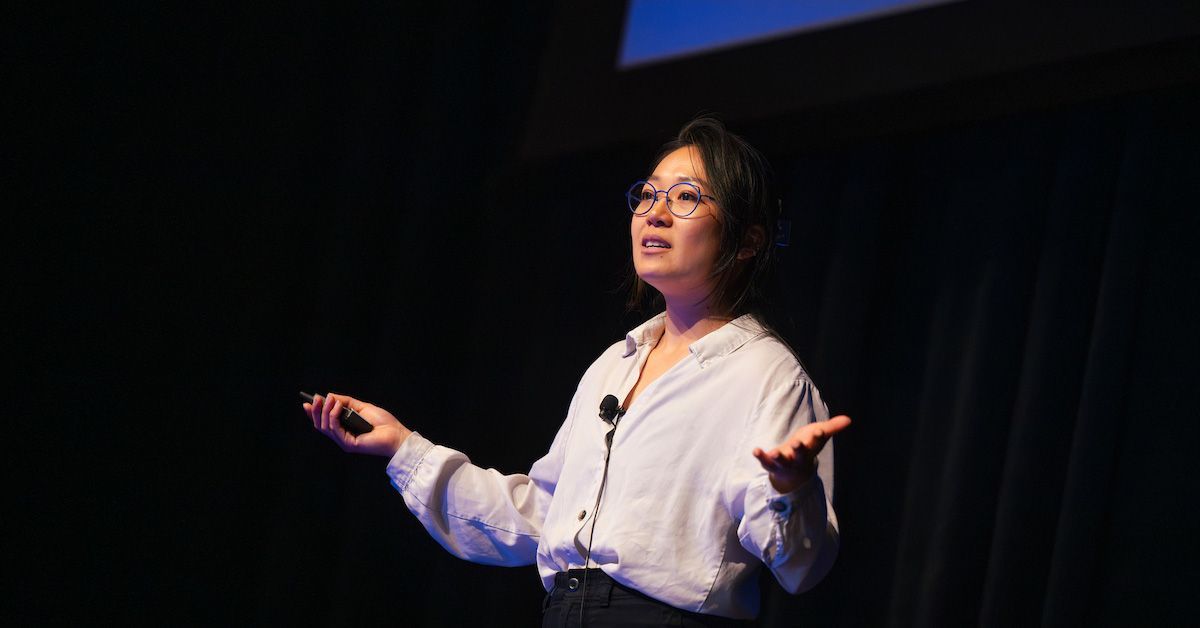Neurosciences Ph.D. Student Wins Grad SLAM Top Prize
Campus champion Iris Garcia-Pak will advance to UC Final Round on May 3
Story by:
Published Date
Article Content
If you picture the human brain as an exclusive VIP club, then the blood-brain barrier—a network of vessels that prevents harmful substances from reaching the brain—acts as the club’s bouncer, letting necessary nutrients and oxygen in while keeping unwanted guests out.
Employing this clever metaphor to explain her work to an audience of non-scientists, Iris Garcia-Pak, a fourth-year Ph.D. student in the Department of Neurosciences at UC San Diego School of Medicine, delivered an engaging research talk entitled “The Brain: An Exclusive VIP Club,” April 11, which earned her the title of 2024 Grad SLAM campus champion and a $5,000 cash prize.
Selected by a panel of four judges from across UC San Diego, including 2015 Grad SLAM campus champion Alex Phan, who is now the executive director for student success at the university’s IDEA Engineering Student Center, Garcia-Pak is now busy preparing to face off against her counterparts from other University of California campuses during the Grad SLAM Final Round in San Francisco on May 3. The systemwide competitive public speaking event gives graduate students an opportunity to showcase the potential impacts of their research while honing a highly valuable skill: translating complex research topics into jargon-free language that the average person can understand.
This year’s 10 UC San Diego Grad SLAM campus finalists—who were selected from dozens of video submissions—hailed from a variety of fields, including global policy and strategy, experimental psychology and bioengineering. In the style of a TED Talk, the finalists deftly condensed years’ worth of research into just three minutes, with topics that included using biosensors to “spy” on cells and inventing new jury instructions that reduce the risk of wrongful convictions. Each took home a cash prize of at least $500.
The annual event, now in its 11th year, serves as opportunity for UC San Diego to showcase the contributions of its graduate students not only to the campus, but also to their respective fields.

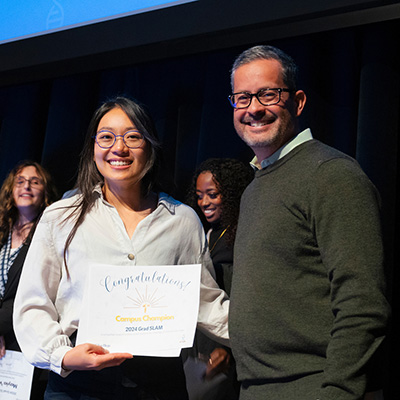
“Our graduate students make significant contributions to the UC San Diego community. They contribute to the vitality and advancement of the university’s research mission, and many of us as faculty members see advising graduate students as an essential part of our work—frankly, one of the most joyous parts of our work,” said Dean of Graduate Education and Postdoctoral Affairs James Antony as he welcomed spectators gathered in the Price Center and via virtual livestream. “Graduate students also advance our teaching mission by serving as undergraduate course instructors, teaching assistants, lab guides and research mentors. They help generate, or in many cases generate themselves, cutting-edge ideas and technologies and research that years later can become foundational for a field or a discipline.”
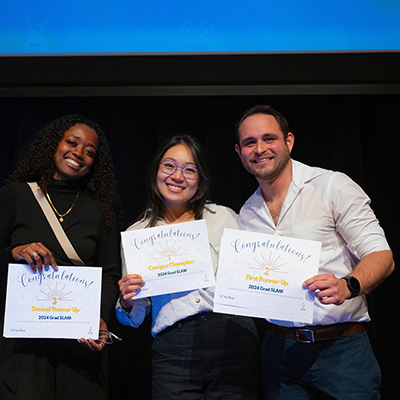
This year’s second-place title and $3,000 cash prize were awarded to Fernando Melendez Vazquez of Scripps Institution of Oceanography for his talk entitled “Unraveling the Mysteries of Endothermy in Fishes,” with the third-place title and $1,500 cash prize going to Cynthia Nyongesa, a graduate student in the Department of Neurosciences, for “The Power of Speech: How Our Voices Tell the Story of Aging."
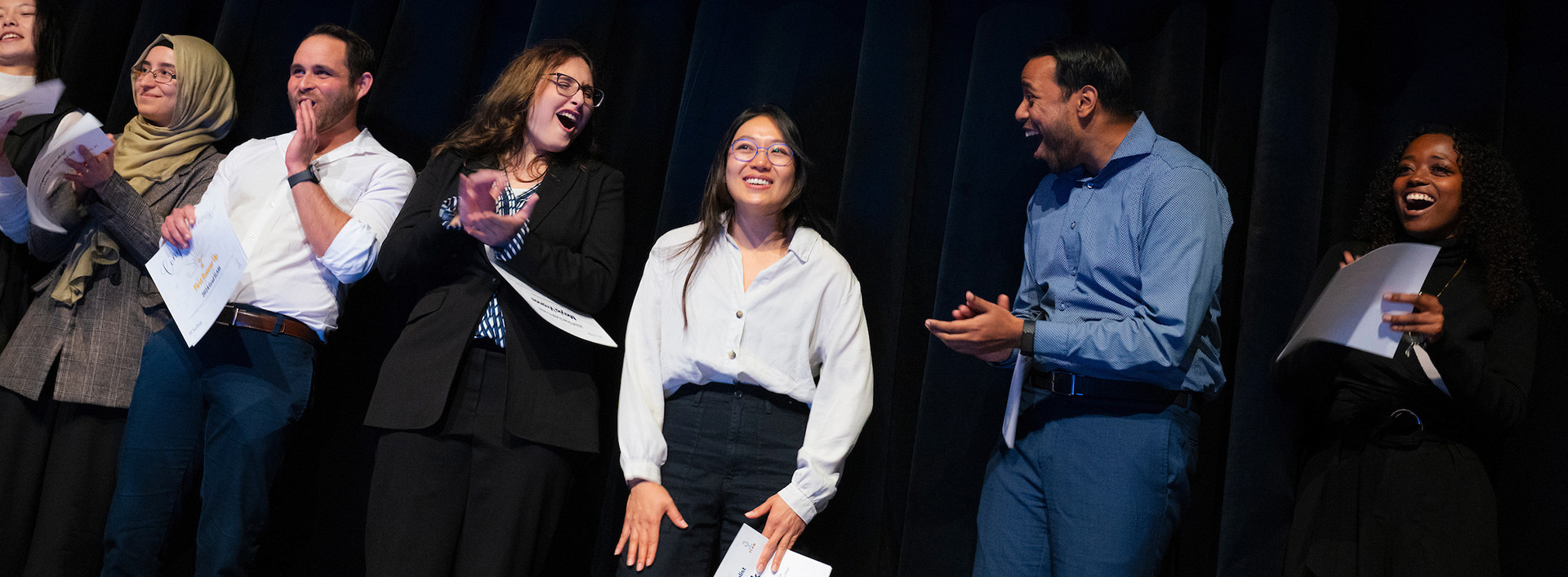
In preparation for the competition, participants were invited to a series of in-person coaching sessions organized by the Division of Graduate Education and Postdoctoral Affairs, where they received valuable feedback from both staff and from each other.
Garcia-Pak, who will earn both a Ph.D. and M.D. through UC San Diego’s Medical Scientist Training Program, said that participating in Grad SLAM has helped her “zoom out” from her work and remind herself that not everyone knows about the blood-brain barrier or understands why studying it is important.
“It’s really hard to understand how other people see your research, when you’re in the middle of it and you know all the details,” said Garcia-Pak. “It’s been a valuable lesson that I’ll continue to take with me in the future.”
In the lab of her faculty advisor Richard Daneman, an associate professor in the Departments of Pharmacology and Neurosciences, Garcia-Pak and colleagues have found that the blood-brain barrier may be controlling levels of glutamate—what neurons use to talk to each other—in the brain.
“Uncontrolled levels of glutamate are associated with brain states like anxiety and other neuropsychiatric conditions,” said Garcia-Pak. “My data supports that the ‘bouncer’ escorts extra unwanted glutamate from the brain, and this is super exciting because it suggests that the blood-brain barrier may be playing a role in preventing these conditions."
“Iris is a brilliant and creative scientist with an incredible passion for understanding neurological disorders. She is making critical discoveries about how the blood-brain barrier—or, as she calls it, the "bouncer of the brain"—regulates brain activity, and how dysfunction of this barrier may underlie mood and psychiatric disorders,” said Daneman. “Plus, Iris’ originality and wackiness bring a wonderfully fun aspect to the lab environment. Participating in Grad SLAM was an outstanding experience for Iris, as she got to practice articulating her science to those outside her field and show off her fantastic discoveries and boundless creativity.”
Dean Antony encourages Tritons to tune in and cheer for Garcia-Pak during the UC Grad SLAM Final Round, which will be livestreamed from the LinkedIn Headquarters in San Francisco on May 3 at 10:30 a.m. There will also be a chance for viewers to vote online for her to receive the “People’s Choice Award.”
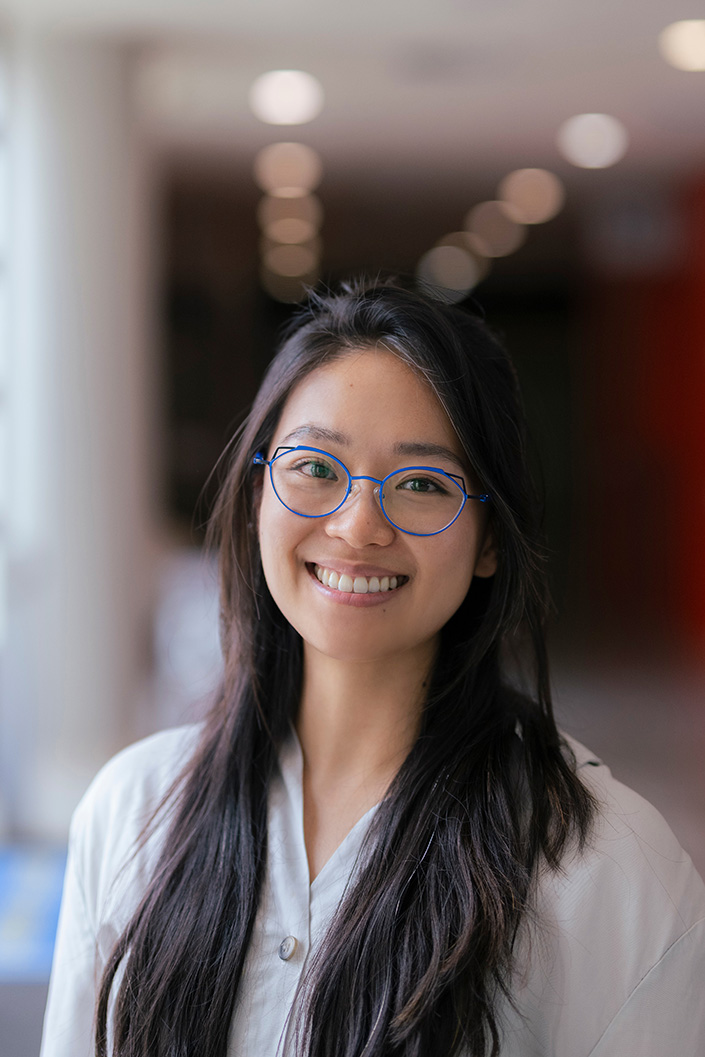
You May Also Like
UC San Diego is Strengthening U.S. Semiconductor Innovation and Workforce Development
Technology & EngineeringStay in the Know
Keep up with all the latest from UC San Diego. Subscribe to the newsletter today.
